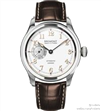阅读下面短文,根据短文内容完成表格中所缺信息,每空一词。
It seems that self-help books are topping best-seller lists more often these days. More people are turning to self-help books for advice on how to live their lives. Last year, sales of these books in the UK rose 20 percent, reaching a record high of 3 million, the Guardian reported.
Famous people or psychologists( 心理学家) wrote many of the self-help books. They teach you how to deal with problems in your life—for example, how to get along with your classmates, how to manage your time well and how to find happiness in your daily life.
But can these books really help us with our lives? People have lots of different opinions about this.
Julie Hall from London is a big fan of self-help books. After she read more than 300 of them, she set up her own self-help website. Her site helps women succeed in the business world. “They(self-help books) can give you the courage to do whatever you want to do,” she told the Independent.
However, recent research by the University of Montreal in Canada might not agree with that. Researchers surveyed two groups of people—one of the group had read many self-help books, while the other hadn’t. They found that people in the group who had read more self-help books have more stress.
There is no single “quick fix” that can make our lives better. However, it’s always good to know that help is at hand when we need it.
Self-help books help us learn to live 1. | |
Introduction | 2.people are turning to self-help books for advice on how to live their lives. Many of the self-help books were 3.by famous people or psychologists. They teach you what to 4.with problems. |
Opinions | After 5.more than 300 of them, Julie Hall set up her own website. Her site helps women have 6.in the business world. Self-help books can give you the courage to do whatever you 7.to do. |
8.research by the University of Montreal in Canada might not agree with that. A survey shows that people who had read more self-help books were more 9. | |
Conclusion | There is no single “quick fix” that can 10.our lives, but having help at hand is good. |
 Joe was an old man. The 75-year-old lived very happily in a village and had a beautiful family. His children grew up and moved to different cities. Now, Joe has four grandchildren, and they visit him during their holidays.
Joe was an old man. The 75-year-old lived very happily in a village and had a beautiful family. His children grew up and moved to different cities. Now, Joe has four grandchildren, and they visit him during their holidays.